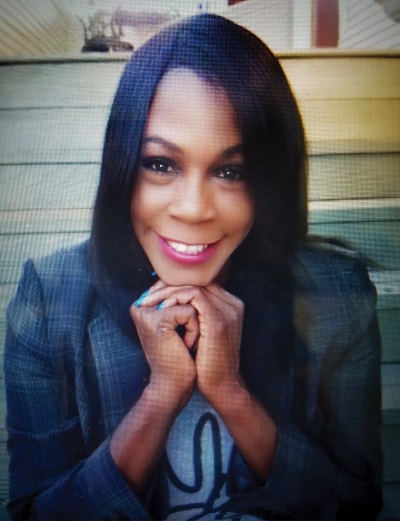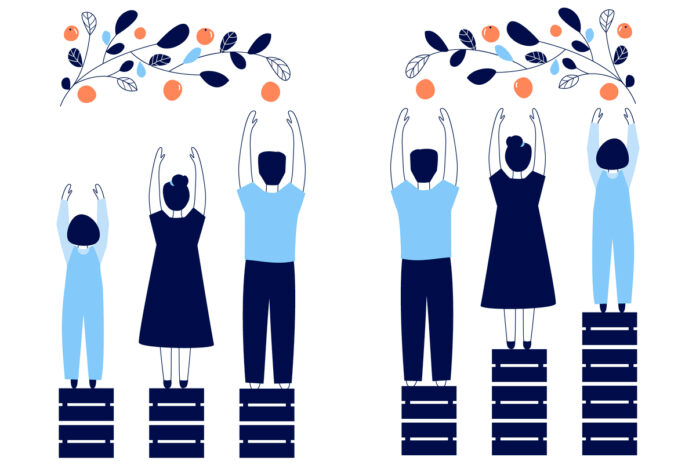Patricia Brooks is an educator, activist, technologist, and leader in the effort to create real equity in the cannabis industry. The program she created, “Removing Barriers, Cultivating a New Path Forward,” is now a credentialed program called the Peralta Colleges Foundation, designed for students enrolled in the cannabis certification program at Merritt College. The curriculum helps participants get back on their feet and be prepared to run their own cannabis business. Harborside Inc. endowed the foundation with a $10,000 contribution.
Explain the program you helped create and are leading.
During my time creating equity policy in [the tech sector], people were promising they would fix the problem “later,” and of course later never happened. In the cannabis space, when it was time to craft policy and I was told “we’ll make good later,” I took my own experience from the tech space and writing grants and applied it to creating real diversity and inclusion, thus helping move people out of poverty through education and employment. I created “Removing Barriers, Cultivating a New Path Forward” for disenfranchised populations with an emphasis on serving people of color from low-income families.
As a Navy veteran, the Department of Veterans Affairs paid for me to be retrained in technology. I was afforded the opportunity to be trained in programming, working with veterans in tech programs with partners Facebook and Salesforce. While thankful for the training, I still noticed that tech did not make good on its promises, and the tech industry had little to no representation of African Americans.

I appreciated the Salesforce model of laddered learning, though, so I designed my program on the idea of a Salesforce-type model where there are certifications likened to a database administrator badge. So, in my program, the first badge is a lifestyle badge, meaning “get the junk in your trunk clean.” In order to be successful in the cannabis industry, you must have a clean record or your record needs to be expunged. Many factors can prohibit you from being eligible to work or be an owner in the cannabis industry. The lifestyle badge is an education and assistance program that will help the student get those lingering matters taken care of and out of the way.
After the lifestyle badge, you move into coursework, beginning with law and public policy. After the semester, you might have a lifestyle and policy badge. Then we move into cultivation and manufacturing.
My mother and sister both started out as educators. We did not grow up wanting for anything, but one thing that was made clear to us by our parents was go out and get educated because nobody can take that from you.
You’re from Oakland, California. The city’s Equity Permit Program is more than two years old now. Is it working?
If [members of marginalized groups] have the same training, same understanding, and same access to funds, we can thrive. If you give me an equity license, I can hire a Patricia and do the regulatory paperwork. But it is unrealistic to think someone who just got a license can survive in a highly regulated industry with no training. There are equity issues, like people who were formerly incarcerated or lived in disadvantaged neighborhoods, and you are not going to take those people and give them a Willy Wonka chocolate ticket and a dispensary with White majority partners.
Let’s be honest: Arranged marriages don’t work out very well. The equity programs are like arranged marriages: Take a White person and arrange a Black equity partner for them without training. You can’t expect that to work. The City of Oakland established no checks and balances to make such a partnership work.
I do not believe the responsibility lies with the cities to be marriage counselors. How are the people who got an equity license last year, how are they doing? The answer that is not published, in my opinion, is that they are not doing well. Let’s be clear: Without the City of Oakland doing something, nothing would have been done to even raise the issue of equity by way of diversity and inclusion. That said, it is a start in the right direction.
How can the industry create opportunity and advancement?
We have to make a long-term investment in education. We have to teach people how to go to work. Many people who were incarcerated don’t know how to “go to work.” The ability to understand how to run a business must be taught.
I believe in creating an economy of scale and for every industry to take a step back and think. When I see cannabis companies and other corporations posting and saying “Do right by Black people,” I think, “If everyone is so concerned about this, why were none of these values reflected in your business the day before George Floyd was murdered? You only care now because it’s public.” We need to go beyond “I need to hire a Black person,” and we need people to ask themselves why this didn’t matter twenty-four hours before George Floyd was killed. When we talk about systemic racism, we have to realize a lot of people don’t even know they are experiencing it and their silence is a part of the problem.
What advice would you give a young person starting a career or a company launching a cannabis business?
Go get an education on how to run your business. Immediately. Do not look for short-term satisfaction. Find mentors who can help you; who you can trust. Take your time. Do your homework. Learn how to understand policy. Learn about challenges.
The challenge for any company is the market will do what the market will do because that is how this whole system works. The state is not going to control the market nor can it. Be willing to get involved and find people you can talk to and work with. Don’t be afraid of what you don’t know; instead, find avenues to learn what you don’t know.

Robert O’Shaughnessy is co-founder and partner at Higher Ground Agency, a public relations and marketing firm supporting the cannabis industry, where he manages the marketing and digital side of things. A graduate of Boston University, he is a frequent speaker and published author, and would probably really enjoy having a beer with you.













